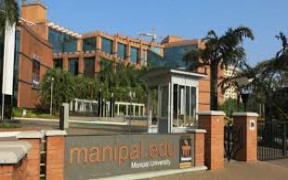BSc Nuclear Medicine Technology Colleges in Bangalore: Top Colleges, Admission Process, Exams, Placements, and Career Opportunities
The field of nuclear medicine combines science, technology, and healthcare, offering innovative diagnostic and therapeutic solutions. BSc Nuclear Medicine Technology is a specialized undergraduate program designed to train students in using radioactive materials for diagnosis and treatment. Bangalore, with its robust educational infrastructure and advanced medical facilities, is an excellent city to pursue Nuclear Medicine Technology. This guide delves into the specifics of BSc Nuclear Medicine Technology in Bangalore, highlighting its importance, admission procedures, top BSc Nuclear Medicine Technology colleges in Bangalore, placements, and more.
List of Top BSc Nuclear Medicine Technology Colleges in Bangalore
Bangalore is home to several reputed institutions offering BSc Nuclear Medicine Technology, combining academic excellence with practical exposure. Top BSc Nuclear Medicine Technology colleges in Bangalore are:
Top BSc Allied Health Science Courses in Bangalore
What is BSc Nuclear Medicine Technology?
BSc Nuclear Medicine Technology is a three-year undergraduate course focusing on the application of nuclear medicine techniques in diagnosing and treating various diseases. The course equips students with the technical and theoretical knowledge to handle radioactive substances and imaging equipment safely and effectively.
Key Learning Areas of BSc Nuclear Medicine Technology
- Radiopharmacy: Preparation and handling of radiopharmaceuticals.
- Nuclear Imaging Techniques: Utilizing gamma cameras, PET (Positron Emission Tomography), and SPECT (Single Photon Emission Computed Tomography).
- Patient Care: Understanding patient preparation and safety measures.
- Radiation Safety: Ensuring compliance with radiation protection standards and protocols.
- Clinical Applications: Diagnosing and treating conditions such as cancer, cardiovascular diseases, and neurological disorders.
Graduates play a critical role in healthcare teams, providing accurate diagnostic data and assisting in targeted treatments.
BSc Nuclear Medicine Technology Admission Procedure in Bangalore
The admission process for BSc Nuclear Medicine Technology in Bangalore typically involves the following steps:
Eligibility Criteria
- Educational Qualification: Completion of 10+2 (or equivalent) with Physics, Chemistry, and Biology as core subjects. A minimum aggregate score of 50% is usually required.
- Age Limit: Candidates must be at least 17 years old at the time of admission.
Application Process
- Online/Offline Applications: Submit applications via the college website or offline forms.
- Entrance Exams: Some colleges may conduct entrance exams to evaluate candidates, while others admit students based on merit.
- Document Submission: Provide necessary documents such as mark sheets, ID proof, and photographs.
Selection Criteria
- Performance in 12th grade or equivalent exams.
- Scores from entrance exams (if applicable).
- Personal interviews or counseling sessions in some institutions.
Direct Admission for BSc Nuclear Medicine Technology Colleges in Bangalore
Direct admission for BSc Nuclear Medicine Technology in Bangalore is a viable option for students looking to secure their seats without entrance exams.
How to Apply for Direct Admission
- Contact the college admission office or apply through the official website.
- Check eligibility criteria and ensure all required documents are ready.
- Pay the admission fee to confirm your seat.
While direct admissions may involve higher fees, they offer a quicker enrollment process.
Placements After BSc Nuclear Medicine Technology in Bangalore
A degree in BSc Nuclear Medicine Technology opens up a wide range of career opportunities in hospitals, diagnostic centers, and research organizations.
Job Roles after BSc Nuclear Medicine Technology
- Nuclear Medicine Technologist: Operating imaging equipment and administering radiopharmaceuticals for diagnostic tests.
- Radiopharmacy Technician: Preparing and managing radioactive drugs.
- Radiation Safety Officer: Ensuring compliance with safety protocols in medical and industrial applications.
- Research Assistant: Contributing to medical research in nuclear medicine.
- Clinical Coordinator: Managing diagnostic imaging procedures in healthcare facilities.
Top Recruiters
- Leading hospitals such as Apollo Hospitals, Fortis Healthcare, and Narayana Health.
- Diagnostic centers equipped with nuclear imaging facilities.
- Research institutions specializing in nuclear medicine.
- Pharmaceutical companies producing radiopharmaceuticals.
Salary Expectations
The average starting salary for BSc Nuclear Medicine Technology graduates ranges from INR 3,00,000 to 5,00,000 per annum, with opportunities for growth based on experience and specialization.
Why Study BSc Nuclear Medicine Technology in Bangalore?
Bangalore’s educational and healthcare ecosystem makes it an ideal location for pursuing BSc Nuclear Medicine Technology.
1. High-Quality Education
The city offers access to top colleges with experienced faculty and modern infrastructure.
2. Advanced Healthcare Facilities
Bangalore is home to some of India’s best hospitals and diagnostic centers, providing students with excellent clinical training and exposure.
3. Technological Integration
The city’s prominence in IT complements the technological aspects of nuclear medicine, offering students a competitive edge.
4. Networking Opportunities
Bangalore hosts numerous medical conferences and workshops, allowing students to interact with industry experts and stay updated on the latest advancements.
5. Career Growth
The city’s healthcare industry is growing rapidly, offering abundant job opportunities and career growth for graduates.
BSc Nuclear Medicine Technology Fee in Bangalore
The course fee for BSc Nuclear Medicine Technology in Bangalore varies depending on the institution.
- Government Colleges: INR 50,000 to 1,00,000 per year.
- Private Colleges: INR 1,50,000 to 3,00,000 per year.
Additional expenses may include laboratory fees, exam fees, and material costs.
Conclusion
BSc Nuclear Medicine Technology is a dynamic and rewarding field that plays a crucial role in modern healthcare. BSc Nuclear Medicine Technology equips students with the technical skills and theoretical knowledge needed to excel in diagnostic and therapeutic nuclear medicine. Bangalore, with its top-notch colleges, advanced healthcare facilities, and excellent placement opportunities, is an ideal destination for pursuing this course. By choosing BSc Nuclear Medicine Technology in Bangalore, students can embark on a fulfilling career in one of the most innovative fields of healthcare.
FAQ's for BSc Nuclear Medicine Technology Colleges in Bangalore
The admission process for the BSc Radiotherapy program in Bangalore typically includes filling out an online application form and submitting the necessary academic documents. Some colleges may also require candidates to take an entrance exam or attend an interview to complete the admission process.
The fee for the BSc Radiotherapy program in Bangalore typically ranges between ₹1.5 lakh to ₹4 lakh per year, depending on the institution. The fees may vary based on factors such as the reputation of the college, infrastructure, and the quality of faculty and training provided during the course.
To apply for the BSc Radiotherapy program in Bangalore, candidates must have completed their 12th grade with Physics, Chemistry, and Biology as core subjects. A minimum of 50% marks is generally required for eligibility. Some institutions may also require candidates to clear an entrance exam or interview as part of the selection process.
Yes, continuous education is essential in nuclear medicine as the field constantly evolves with new technologies and treatments. The BSc Nuclear Medicine Technology program provides a solid foundation, and many professionals continue their education through workshops and certifications to stay up-to-date with the latest advancements
Nuclear medicine offers unique insights by allowing the visualization of the function of organs and tissues, rather than just their structure. The BSc Nuclear Medicine Technology program teaches students how to utilize this advanced imaging technology for more accurate and early diagnosis of various conditions.
Nuclear medicine uses small amounts of radioactive materials, or radiopharmaceuticals, which emit gamma radiation. These materials are safe when used properly and help provide detailed images of internal organs and tissues. The BSc Nuclear Medicine Technology program teaches students how to safely handle and administer these substances.
The BSc Nuclear Medicine Technology program is structured with a combination of theoretical coursework and practical clinical placements. Students begin with foundational courses in anatomy, radiology, and physics before progressing to more advanced subjects like radiopharmacy, imaging techniques, and patient management.
Salaries for nuclear medicine technologists vary by region, level of experience, and employer. However, graduates of the BSc Nuclear Medicine Technology program can expect competitive salaries, with potential for salary increases as they gain more experience and advanced certifications in the field.
Nuclear medicine technologists trained through the BSc Nuclear Medicine Technology program play an essential role in cancer treatment by performing imaging tests to detect tumors, monitor the spread of cancer, and assess treatment progress. They also assist in delivering targeted radiation therapies to treat cancer.
Nuclear medicine involves using small amounts of radioactive materials to diagnose and treat diseases, such as cancer, heart disease, and thyroid conditions. The BSc Nuclear Medicine Technology program teaches students how to administer radiopharmaceuticals and operate imaging equipment to monitor patient conditions.
The future of BSc Nuclear Medicine Technology professionals is promising, with increasing demand for skilled technologists in the healthcare industry. As medical technologies continue to advance, there will be more opportunities for nuclear medicine professionals to contribute to diagnostics, research, and treatment in various healthcare settings.
Yes, after completing BSc Nuclear Medicine Technology, graduates can pursue a career in academics by becoming educators or trainers at medical schools, colleges, or healthcare institutions. They can teach future nuclear medicine technologists, helping them gain the necessary skills and knowledge for the profession.
A nuclear medicine technologist trained through BSc Nuclear Medicine Technology is responsible for preparing and administering radioactive substances, operating imaging equipment, conducting diagnostic scans, and ensuring patient comfort and safety during procedures. They also assist in interpreting results in collaboration with physicians.
After completing BSc Nuclear Medicine Technology, students can pursue post-graduation options like MSc in Nuclear Medicine, MSc in Radiology, or MSc in Medical Imaging. Specializing in specific areas such as radiopharmaceuticals, radiation safety, or diagnostic imaging can lead to more advanced career opportunities.
The demand for nuclear medicine technologists in India is growing rapidly due to advancements in medical imaging technologies like PET and SPECT. With the increasing number of cancer patients and the rising use of nuclear medicine for diagnosis, there is a high demand for qualified professionals in this field.
BSc Nuclear Medicine Technology plays a vital role in cancer treatment by using radiopharmaceuticals to target and destroy cancerous cells. Techniques like PET scans allow doctors to monitor cancer progression, assess treatment effectiveness, and detect tumors early, improving patient outcomes.
Radiation safety is a critical aspect of BSc Nuclear Medicine Technology. Students are trained to handle radioactive materials safely, ensuring minimal exposure to both patients and healthcare workers. They learn to implement safety protocols, such as wearing protective gear and using shielding, to prevent harmful radiation exposure.
Enquire Now
Top 10 BSc Nuclear Medicine Technology Colleges in Bangalore
Top Courses

List of Best 10 Colleges in Bangalore
- Yenepoya University Bangalore
- Navaneetham College of Nursing Bangalore
- Vanshika Group of Institutions Bangalore
- Hita College Of Nursing Bangalore
- Samvaad Institute of Speech and Hearing Bangalore
- Sampoorna Group of Institutions Bangalore
- Naseema Institute of Speech and Hearing Bangalore
- Dr. S.R Chandrasekhar Institute Of Speech And Hearing Bangalore
- Chanakya University Bangalore
- Acharya Institute of Health Sciences Bangalore
Study in Bangalore
- Study B.Sc Respiratory Therapy in Bangalore
- Study BPO in Bangalore
- Study BSc Anesthesia Technology in Bangalore
- Study BSc AT & OT in Bangalore
- Study BSc Cancer Biology in Bangalore
- Study BSc Cardiac Care in Bangalore
- Study BSc Cardiovascular Technology in Bangalore
- Study BSc Critical Care in Bangalore
- Study BSc Dialysis Therapy Technology in Bangalore
- Study BSc Emergency Medicine Technology in Bangalore
- Study BSc Medical Record Technology in Bangalore
- Study BSc Medical Science in Bangalore
- Study BSc MIT in Bangalore
- Study BSc MLT in Bangalore
- Study BSc NeuroScience in Bangalore


